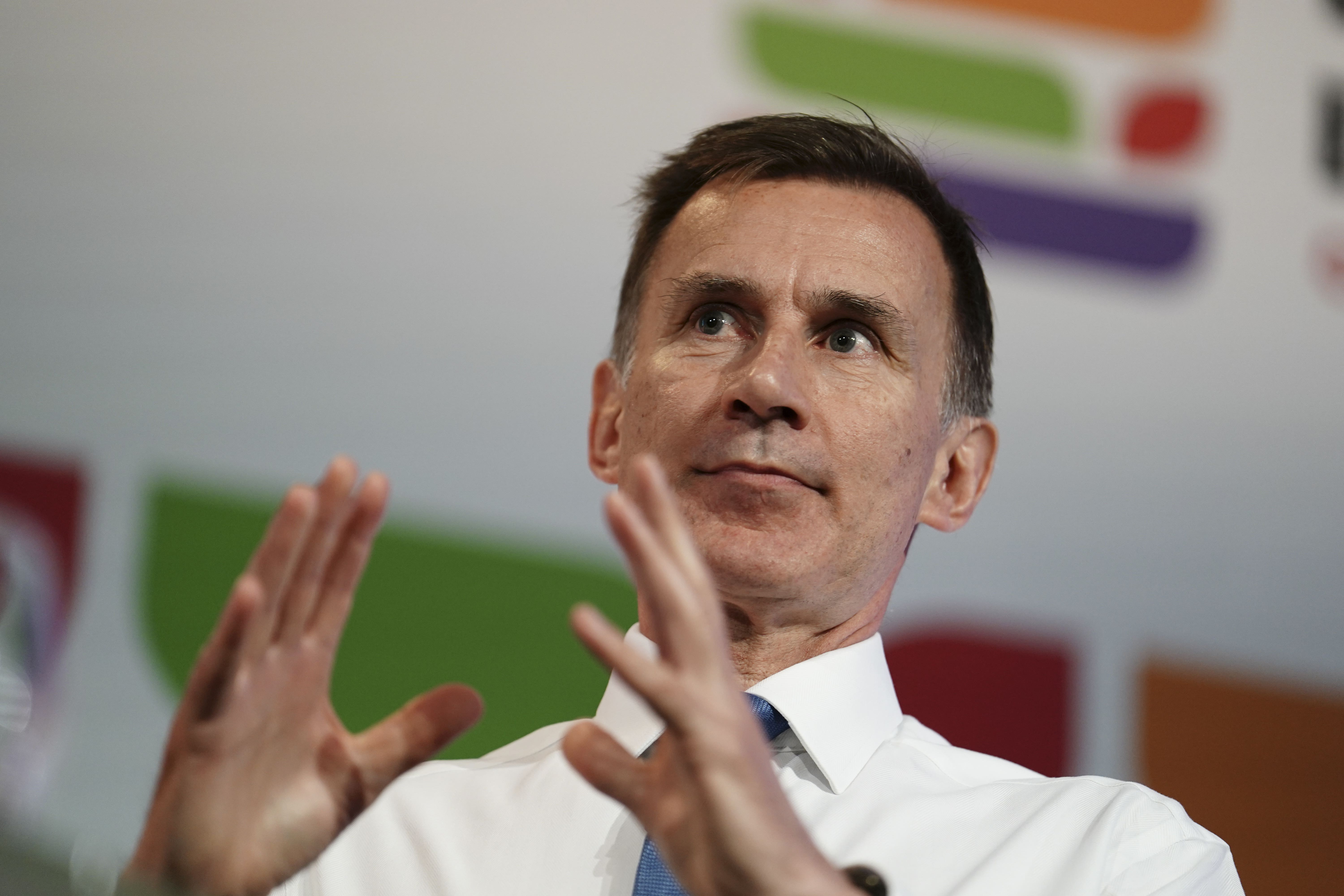Chancellor: ‘No alternative’ to interest rate rises to bring down inflation
Jeremy Hunt’s warning came as households brace for a further increase in interest rates, which already sit at a 14-year-high of 4.5%.

The UK has “no alternative” but to raise interest rates in an effort to bring down inflation, Chancellor Jeremy Hunt has warned.
Households are braced for a further increase in rates – which already sit at a 14-year-high of 4.5% – from the Bank of England next week.
Mr Hunt said the Government will be “unstinting” in supporting the central bank in its efforts to grapple rampant inflation and attempt to bring it back towards a target of 2%.
The Chancellor told Sky News: “We understand that there is real pressure on families with mortgages, on businesses with loans, as interest rates go up.
“We are doing what we can to help people through a difficult patch.
“In the end, there is no alternative to bringing down inflation if we want to see consumers spending, if we want to see businesses investing, if we want to see long-term growth and prosperity.
“And that’s why we will be unstinting in our support for the Bank of England as they go about their job to bring down inflation.”
The central bank’s monetary policy committee (MPC) will vote next week over another potential increase to interest rates, with economists widely predicting they will back a 13th consecutive rise.
Earlier on Wednesday, the Office for National Statistics (ONS) revealed that the UK economy grew 0.2% in April, as positive consumer spending was partially offset by the impact of higher mortgage rates on the construction and estate agency sectors.
It came a day after fresh data showed that average regular wages, not including bonuses, jumped 7.2% higher in the three months to April, up from 6.8% in the three months to March.
The higher-than-expected wage rise stoked further suggestions that inflation could be more persistent than expected and potentially threaten the Government’s pledge to halve inflation in 2023.
Downing Street separately said on Wednesday that the Government was “conscious about the potential for a wage-price spiral” and that is why “difficult decisions” were being made about public sector pay.
The Prime Minister’s official spokesman said: “We know we can’t have high growth with high inflation, that’s why halving inflation is one of the Prime Minister’s key priorities.
“We are working with the Bank of England to drive that down – they are ultimately responsible for setting interest rates.”
Economists predicted that the central bank will have been put on edge by continued high inflation and are likely to hike rates to at least 5%, with the financial markets currently pricing in a peak potentially at 5.5%.
Thomas Pugh, economist at RSM UK, said: “The labour market is not easing quickly enough for the MPC to be comfortable – that points to another 25bps (basis points) rate hike in June, and raises the chances of a 50bps hike, although that is not our base case.
“We expect rate hikes in June and August to take interest rates to 5% before the MPC pauses.”
Bookmark popover
Removed from bookmarks